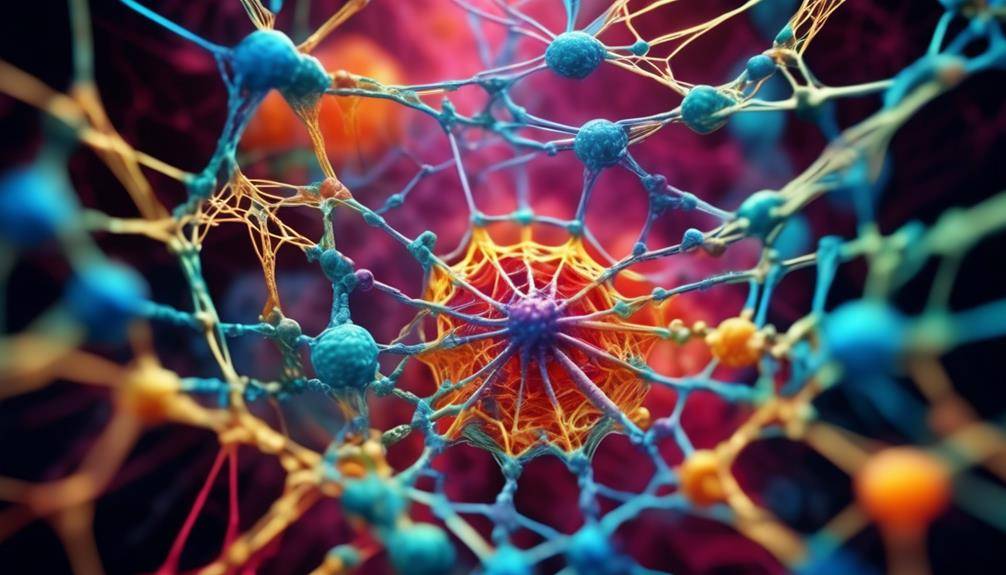Popular Science Behind Ketogenic Diet Principles

Science Behind Ketogenic Diet; So, you’ve heard about this trendy diet called the ketogenic diet, and you’re wondering what all the fuss is about. Well, buckle up, because we’re about to delve into the science behind its principles.
You may be surprised to learn that there’s more to it than just cutting carbs and upping your fat intake. In fact, the ketogenic diet has been studied extensively, and researchers have uncovered some fascinating insights into how it affects your body and why it has gained popularity among those seeking weight loss and improved health. But before we dive into the nitty-gritty, let’s start with the basics: what exactly is the ketogenic diet and how does it work? Stay tuned, because we’re about to uncover the science behind this intriguing dietary approach.
What Is the Ketogenic Diet?
The ketogenic diet is a low-carb, high-fat eating plan that has gained popularity for its potential health benefits and effectiveness in promoting weight loss. The main principle behind this diet is to drastically reduce your intake of carbohydrates and replace them with fats. By doing so, your body enters a metabolic state called ketosis, where it starts using fat as its primary source of fuel instead of carbohydrates.
One of the key benefits of the ketogenic diet is its ability to promote weight loss. When you limit your carbohydrate intake, your body is forced to burn stored fat for energy, resulting in weight loss. Additionally, the high-fat content of the diet helps keep you feeling fuller for longer, reducing the likelihood of overeating and snacking between meals.
In addition to weight loss, the ketogenic diet has been associated with several other health benefits. Research suggests that it may improve insulin sensitivity and blood sugar control, making it a potential therapeutic option for individuals with diabetes or pre-diabetes. It has also been shown to reduce inflammation in the body, which is believed to play a role in the development of chronic diseases such as heart disease and certain types of cancer.
It is important to note that while the ketogenic diet can offer numerous benefits, it may not be suitable for everyone. Individuals with certain medical conditions, such as pancreatitis or liver disease, should avoid this diet. Additionally, it is important to consult with a healthcare professional before starting any new eating plan, especially if you have underlying health concerns or are taking medication.
How Does the Body Enter Ketosis?
To understand how the body enters ketosis, it is important to consider the benefits of this metabolic state, the changes that occur in the body during ketosis, and the process of ketone production. By entering ketosis, your body can tap into its fat stores for energy, leading to weight loss and improved mental clarity. During ketosis, your metabolism shifts to primarily burning fat instead of carbohydrates, resulting in increased fat oxidation and ketone production. This process occurs when your carbohydrate intake is significantly reduced, prompting your body to utilize fats as its main source of fuel.
Benefits of Ketosis
Entering ketosis, a metabolic state where the body primarily relies on ketones for fuel instead of glucose, brings about a range of impressive benefits for overall health and well-being. Here are three key benefits of ketosis:
- Weight Management: Ketosis has been shown to promote weight loss by reducing appetite and increasing the body’s ability to burn fat for energy. By switching from glucose to ketones as the main fuel source, the body becomes more efficient at utilizing stored fat, leading to a decrease in body weight and body fat percentage.
- Improved Brain Function: Ketones are not only a source of energy for the body but also for the brain. When in ketosis, the brain can effectively use ketones as fuel, resulting in improved cognitive function, focus, and mental clarity. This can be particularly beneficial for individuals with neurological conditions such as epilepsy or Alzheimer’s disease.
- Enhanced Energy Levels: Many people report experiencing increased energy levels when in ketosis. This is because ketones provide a more stable and sustained source of energy compared to glucose, which can cause energy crashes and fluctuations in blood sugar levels. By maintaining stable energy levels, ketosis can help improve overall physical performance and endurance.
These benefits highlight the potential of ketosis for weight management, improved brain function, and enhanced energy levels. Incorporating a ketogenic diet into your lifestyle may be worth considering if you are seeking these outcomes.
Metabolic Changes During Ketosis
To enter ketosis, the body undergoes a metabolic shift where it begins to rely on ketones as its primary source of fuel. This metabolic change has numerous benefits for your body. When you follow a ketogenic diet, your carbohydrate intake is significantly reduced, which causes a decrease in blood glucose levels. As a result, your body starts breaking down stored fat into fatty acids and converts them into ketones in the liver.
These ketones then become the main source of energy for your body, including your brain. This metabolic switch from glucose to ketones allows for increased fat burning and weight loss. Additionally, ketosis has been shown to improve insulin sensitivity, control blood sugar levels, reduce inflammation, and enhance mental clarity and focus. Overall, the metabolic changes that occur during ketosis have a wide range of positive effects on your body and health.
Ketone Production Process
The body achieves ketosis by undergoing a metabolic shift, where it starts relying on ketones as its primary source of fuel. To understand the ketone production mechanism, it’s crucial to know that ketones are produced in the liver from fatty acids. The process is known as ketogenesis and occurs when carbohydrate intake is limited, forcing the body to break down fats for energy. Here’s a deeper look at the ketone production process:
- When carbohydrate intake is restricted, the body’s stored glycogen reserves become depleted.
- As a result, the liver begins to convert fatty acids into ketones, specifically beta-hydroxybutyrate (BHB), acetoacetate, and acetone.
- These ketones are then released into the bloodstream, where they can be utilized by various tissues and organs for energy.
Understanding the ketone production mechanism helps us grasp how the body adapts to a ketogenic diet and utilizes ketones as an alternative fuel source.
The Role of Ketones in Energy Production
Have you ever wondered how ketones play a crucial role in the production of energy in your body? Ketones, which are produced during a ketogenic diet, have been found to have significant effects on brain function and athletic performance.
When your body enters a state of ketosis, it starts producing ketones as an alternative fuel source to glucose. These ketones can cross the blood-brain barrier and provide energy to the brain when glucose levels are low. In fact, studies have shown that ketones may have neuroprotective effects and can improve cognitive function in individuals with neurological disorders, such as epilepsy and Alzheimer’s disease.
In addition to their role in brain function, ketones have also been shown to enhance athletic performance. During prolonged periods of exercise, your body relies on glucose as its primary fuel source. However, when glucose levels are depleted, ketones can step in and provide a steady source of energy for your muscles. This can delay the onset of fatigue and improve endurance performance.
Furthermore, ketones have been found to enhance the body’s ability to burn fat for fuel. When you consume a ketogenic diet, your body becomes more efficient at utilizing fat stores as an energy source. This can lead to increased fat loss and improved body composition.
Understanding the Relationship Between Carbohydrates and Insulin
When your body enters a state of ketosis and begins producing ketones, it’s important to understand the relationship between carbohydrates and insulin to optimize your ketogenic diet. The carbohydrate-insulin connection plays a significant role in regulating blood sugar levels and influencing your body’s metabolic response to the food you consume. Here are three key points to deepen your understanding:
- Carbohydrate Insulin Connection:
- Carbohydrates are the primary macronutrient that stimulates the release of insulin in the body.
- Insulin is a hormone secreted by the pancreas in response to increased blood sugar levels after consuming carbohydrates.
- The main role of insulin is to facilitate the uptake and utilization of glucose by cells, ensuring blood sugar levels remain within a healthy range.
- Insulin Response to Carbohydrates:
- Different types and amounts of carbohydrates elicit varying insulin responses.
- Simple carbohydrates, such as refined sugars and white bread, cause a rapid and substantial increase in blood sugar levels, leading to a more significant insulin release.
- Complex carbohydrates, found in whole grains and fibrous vegetables, result in a slower and steadier rise in blood sugar levels, leading to a milder insulin response.
- Optimizing Your Ketogenic Diet:
- Restricting carbohydrate intake is central to achieving and maintaining ketosis.
- By minimizing carbohydrate consumption, you can minimize the insulin response, which helps shift your body into a fat-burning state.
- It is essential to choose high-quality, nutrient-dense carbohydrates when following a ketogenic diet to support overall health and provide essential nutrients.
Understanding the relationship between carbohydrates and insulin empowers you to make informed choices about your dietary intake. By managing your carbohydrate consumption, you can optimize your ketogenic diet and reap the benefits of ketosis for improved energy, weight management, and overall well-being.
The Impact of a High-Fat Diet on Weight Loss
When it comes to weight loss, a high-fat diet can have a significant impact. Your body is able to use fat as an energy source, leading to a decrease in stored fat and overall weight loss. Additionally, this diet can trigger a metabolic adaptation process where your body becomes more efficient at burning fat. Finally, the production of ketones plays a crucial role in weight loss, as they help suppress appetite and increase fat burning.
Fat as an Energy Source
Does a high-fat diet really lead to weight loss? Many people may question this idea, as it goes against the conventional wisdom of reducing fat intake to shed pounds. However, the science behind the ketogenic diet principles suggests otherwise. When you consume a high-fat diet, your body enters a state of ketosis, where it switches its primary fuel source from carbohydrates to fat. This shift in metabolism allows your body to tap into its fat stores and utilize them as an energy source. Here’s how a high-fat diet promotes weight loss:
- Increased fat metabolism: By consuming a high-fat diet, you provide your body with ample fat to burn for energy, leading to a more efficient fat metabolism.
- Enhanced satiety: Fat is more satiating than carbohydrates, which can help reduce cravings and promote a feeling of fullness, ultimately leading to decreased calorie intake.
- Improved insulin sensitivity: A high-fat diet can enhance insulin sensitivity, helping to regulate blood sugar levels and prevent excessive fat storage.
Metabolic Adaptation Process
A high-fat diet can have a significant impact on weight loss through its effect on the metabolic adaptation process. When you consume a diet high in fat and low in carbohydrates, your body enters a state of ketosis. During ketosis, your body switches from using carbohydrates as its primary fuel source to using fats. This metabolic adaptation process is essential for weight loss because it allows your body to burn stored body fat for energy.
As a result, you can experience significant weight loss, especially in the form of body fat. The ketogenic diet principles focus on manipulating your body’s metabolism to maximize fat burning and optimize weight loss. By following these principles, you can harness the power of metabolic adaptation to achieve your weight loss goals.
Role of Ketones
The presence of ketones in the body plays a crucial role in the impact of a high-fat diet on weight loss. Ketones are molecules produced by the liver when there is a shortage of glucose in the body. They serve as an alternative fuel source for the brain and muscles, allowing them to function properly even in the absence of carbohydrates. Here are three key points to understand the role of ketones in weight loss:
- Ketones as fuel: When you consume a high-fat diet, your body begins to break down fats into ketones for energy. This shift from glucose to ketones as the primary fuel source can lead to increased fat burning and weight loss.
- Ketone testing methods: To ensure you are in a state of ketosis, where your body is producing ketones, you can use various testing methods such as urine, blood, or breath ketone tests. These tests provide valuable information about your body’s metabolic state and can help you adjust your diet accordingly.
- Monitoring ketone levels: It is important to monitor your ketone levels to ensure you are within the optimal range for weight loss. By regularly testing your ketone levels, you can make adjustments to your diet and lifestyle to maximize the benefits of ketosis.
Understanding the role of ketones and utilizing proper ketone testing methods can help you achieve your weight loss goals effectively while following a high-fat diet.
Potential Health Benefits of the Ketogenic Diet
Potential health benefits of the ketogenic diet include improved weight loss, increased energy levels, and better blood sugar control. Many people turn to the ketogenic diet to achieve their weight loss goals. The diet’s high fat and low carb content forces your body to switch from using glucose as its primary fuel source to using ketones. This metabolic shift can lead to significant weight loss.
When your body enters a state of ketosis, it starts burning stored fat for energy instead of relying on carbohydrates. This can result in faster fat loss and a reduction in overall body weight. Research has shown that the ketogenic diet may be more effective for weight loss compared to other diets, such as low-fat or low-calorie diets. It has also been found to help maintain weight loss in the long term.
Additionally, one of the benefits of the ketogenic diet is increased energy levels. When your body is in ketosis, it becomes more efficient at utilizing fat for energy. Fat is a dense energy source, providing more sustained and stable energy compared to carbohydrates. This can lead to improved physical and mental performance throughout the day. Many people report feeling more alert, focused, and energized when following the ketogenic diet.
Moreover, the ketogenic diet has been shown to improve blood sugar control. By limiting carbohydrate intake, the diet helps regulate blood sugar levels, preventing spikes and crashes. This is especially beneficial for individuals with diabetes or insulin resistance. Several studies have demonstrated that the ketogenic diet can significantly reduce blood sugar levels and improve insulin sensitivity. This can have a positive impact on overall health and help manage or prevent conditions related to blood sugar dysregulation.
Science Behind Ketogenic Diet; Frequently Asked Questions
Are There Any Potential Side Effects or Risks Associated With Following a Ketogenic Diet?
There may be potential side effects and risks of following a ketogenic diet. It’s important to understand these risks and consult with a healthcare professional to ensure you’re still meeting your recommended nutrient intake.
Can a Ketogenic Diet Be Harmful for Individuals With Certain Medical Conditions?
A ketogenic diet may not be suitable for individuals with certain medical conditions like diabetes or epilepsy. It is important to consult with a healthcare professional before starting any dietary changes to ensure safety and effectiveness.
Is It Possible to Follow a Vegetarian or Vegan Ketogenic Diet?
Yes, it is possible to follow a vegetarian or vegan ketogenic diet. You can incorporate plant-based fats like avocados, nuts, and coconut oil. Benefits include weight loss, improved insulin sensitivity, and reduced inflammation.
How Long Does It Typically Take for the Body to Enter Ketosis After Starting a Ketogenic Diet?
It typically takes a few days for your body to enter ketosis after starting a ketogenic diet. During this time, your body’s adaptation and metabolic changes occur as it transitions from using carbohydrates to fat as its primary fuel source.
Can the Ketogenic Diet Be Used as a Long-Term Sustainable Eating Plan, or Is It Meant for Short-Term Weight Loss Only?
The ketogenic diet can be a long-term sustainable eating plan, not just for short-term weight loss. It has numerous long term benefits such as improved insulin sensitivity, reduced inflammation, and increased energy levels. With proper planning and variety, it can be a practical and effective lifestyle choice.
Conclusion
In conclusion, the ketogenic diet is a scientifically-backed approach to weight loss that focuses on reducing carbohydrate intake and increasing fat consumption. By doing so, the body enters a state of ketosis where it utilizes ketones for energy production instead of glucose. This diet can lead to significant weight loss and has potential health benefits. However, it is important to consult with a healthcare professional before starting any new diet plan to ensure it is suitable for individual needs.








